WIC11 Preview - Northern Lights to sparkle
- Tuesday, July 26 2011 @ 12:23 am ACST
- Contributed by: Tobietta Rhyman
- Views: 8,625
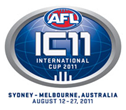
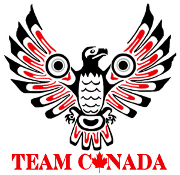 The 2011 International Cup will feature a women's division for the first time ever. Five teams will fight for the inaugural Women's trophy. We begin our previews with Canada.
The 2011 International Cup will feature a women's division for the first time ever. Five teams will fight for the inaugural Women's trophy. We begin our previews with Canada.
Women’s football in Canada has come a long way since the first women’s team was formed back in 2007 in preparation for the Northern Light’s first ever international against the USA Freedom. They lost that match, but didn’t lose the desire to continue the push to expand female football across Canada. With momentum on the back of their surprise victory over their American rivals in the 2010 49th Parallel Cup, the Northern Lights are coming over to Australia with the intention of dazzling opposition and fans alike.
The Country
Canada is comprised of ten provinces and three territories. The official languages are English and French, which is spoken in the eastern state Quebec. Ottawa, in Ontario, is the capital city, though the largest city is Toronto, further south in Ontario near the USA border. Canada has an area of 9,985,000 square kilometers, but large areas of the north are covered in glaciers and permafrost and one could say are mostly uninhabitable. Canada’s population is 34,523,000, and a population density of 3.41 people per square kilometer means recruiting players from outside the larger cities is difficult. Canada’s national symbols are influenced by natural, historical and Aboriginal sources. An example is the maple leaf used on the national flag, and the Team Canada emblem, a totem pole style eagle. Before the women’s team adopted the uniquely Canadian “Northern Lights” moniker, they were called the Eagles.
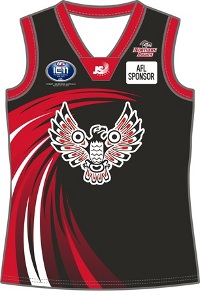 Canada’s official national sports are ice hockey and lacrosse, and other popular sports include curling and Canadian Football. Canada has hosted several high profile international sporting events, including the 1976 Olympics, the 1988 and 2010 Winter Olympics, and the 2007 FIFA U20 World Cup.
Canada’s official national sports are ice hockey and lacrosse, and other popular sports include curling and Canadian Football. Canada has hosted several high profile international sporting events, including the 1976 Olympics, the 1988 and 2010 Winter Olympics, and the 2007 FIFA U20 World Cup.
Canada borders with the USA on two sides (mainland USA and Alaska) and the two countries have a long history of collaboration. AFL is no exception. Every year, a national team from the USA plays against Canada in the “49th Parallel” Cup. The Northern Lights have also competed against the USA’s national women’s team, the Freedom, in 2007 and 2010.
The Story of Women’s Football
Women’s football in Canada dates back to 2004 when a Toronto team, Etobicoke Kangaroos, held a development clinic at two local girls’ schools. At the end of the clinic, the two schools played each other- the first ever all female Australian football match played in Canada.
Three years later in 2007, women’s football took another step when the USA Freedom challenged Canada to a women’s international match before the 49th Parallel Cup in Vancouver. In preparation for the match, the first Canadian women’s team, the Calgary Kookaburras, was formed in Alberta. The national team comprised of 14 Calgary Kookaburras players, and 6 players from Vancouver, and lost two matches against the USA Freedom, but the Kookaburras were later invited to participate in the 2007 USAFL Women’s National Championships in Louisville, Kentucky.
Following the success of the Kookaburras, Alberta again led the way in the development of women’s football in Canada with the establishment of the first women’s football league in 2008. The Hillhurst Nighthawks won the inaugural Alberta Premierships, and the Calgary Kookaburras were again invited to the USAFL Women’s National Championships, in Colorado Springs, where they defeated the Atlanta Lady Kookaburras in the final.
The Edmonton Emus joined the Alberta league in 2009, and competed against the Calgary Kookaburras and Vancouver’s West Coast Wildcats at the Canadian Women’s National Championships. Following this success, two more provinces, Ontario and Quebec, formed their own women’s football teams, the Toronto based Central Blues and the Montreal Angels.
Today, women’s football is played in 4 of Canada’s provinces and territories- Alberta, British Colombia, Ontario and Quebec. Current teams are the Calgary Kookaburras and Edmonton Emus (Alberta), West Coast Wildcats (British Columbia), Toronto Central Blues and Toronto Eagles (Ontario), and Montreal Angels (Quebec), with a potential for further expansion with men’s clubs Etobicoke Kangaroos and Ottawa Swans (Ontario) interested in forming women’s teams.
Women’s football in Canada is still quite under-developed, with only a handful of women’s teams in the provinces where Aussie Rules is played. However, the limited range of clubs from which the representatives were picked may turn out to the Northern Light’s advantage, as most of the girls will know each other and have experience of playing with each other.
Strengths and Weaknesses
The Northern Lights have an experienced coaching team. Head coach Tristan Waldock started playing football at the age of 5 and played 4 seasons with Wickepin Warriors in Western Australia before moving to Canada in 2008. He has plenty of coaching experience at the helm of the Edmonton Emus, and was assistant coach of the Northern Lights in the 2010 49th Parallel Cup.
Backing him up is another Australian, assistant coach Mark Peterson, who played for AFL team Melbourne Demon’s U19s and VFL Sandringham Zebras. Since moving to Canada in 2009, he has been involved with the Toronto Eagles and is their women’s team’s coach, as well as president of the OAFL
The Northern Lights team boasts quite a few players with over 5 years of playing Aussie Rules, and the relative newcomers are backed up by their experiences and skills from other sports, including rugby, soccer, Canadian football and Gaelic football. With women’s Australian football still being scarce in Canada, many of the girls have been brought up through the men’s game, such as ruckman Lindsay Belzie (Montreal Angels/Quebec Saints) and Sherelle Kelly-Witt (Toronto Central Blues), and there’s no doubt these girls will put up a fearsome defence. Up front are some of Canada’s top goal kickers, including Lori Bosset (Calgary Kookaburras) and Margo Legaut (Montreal Angels), the ECAFL’s top goal kicker.
The 2010 Northern Lights team also have the experience of convincingly beating the USA Freedom in last year’s 49th Parallel Cup 4.12 (36) to 2.4 (16). However, with the exception of a couple of players, most notably Aimee Legaut who is currently training with Australian VWFL team East Burwood Devils, there are few players with experience of top level women’s football. The Northern Lights squad have also never faced an international opponent other than the USA Freedom and have never travelled outside North America to compete in a tournament.
Players to watch
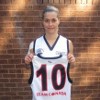 First up will be Aimee Legaut (Montreal Angels/ East Burwood Devils). Originally from soccer, she switched to football with the Montreal Angels, and got two Best on Ground performances out of three matches at the 2009 USAFL Women’s Nationals. Currently in Australia, she plays with VWFL powerhouse East Burwood Devils, and will no doubt be out to impress the world with her top class footy skills.
First up will be Aimee Legaut (Montreal Angels/ East Burwood Devils). Originally from soccer, she switched to football with the Montreal Angels, and got two Best on Ground performances out of three matches at the 2009 USAFL Women’s Nationals. Currently in Australia, she plays with VWFL powerhouse East Burwood Devils, and will no doubt be out to impress the world with her top class footy skills.
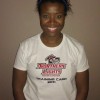 Another from Quebec, Lindsay Belzie (Montreal Angels) previously played American football and rugby before joining the Angels’ ruck. Her skills and physical presence make her a vital part of the team, and her impressive performance in the Nationals helped the Angels defeat the Edmonton Emus to win the title. Additionally, she also has a 2010 OAFL Division 2 Premiership medal to her name as a member of the men’s team, the Quebec Saints.
Another from Quebec, Lindsay Belzie (Montreal Angels) previously played American football and rugby before joining the Angels’ ruck. Her skills and physical presence make her a vital part of the team, and her impressive performance in the Nationals helped the Angels defeat the Edmonton Emus to win the title. Additionally, she also has a 2010 OAFL Division 2 Premiership medal to her name as a member of the men’s team, the Quebec Saints.
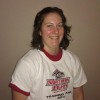 Margot Legaut (Montreal Angels) is the third promising player from Quebec. Relatively new to football, she switched from rugby in 2009, but scored 4 goals in her opening ECAFL match and never stopped rising, earning the Angels’ captaincy and a Northern Lights geurnsey in 2010. A formidable forward, she has scored more goals than any other woman in the ECAFL and her dominating performance for the Northern Lights in the 49th Parallel Cup earned her one of the Best on Ground.
Margot Legaut (Montreal Angels) is the third promising player from Quebec. Relatively new to football, she switched from rugby in 2009, but scored 4 goals in her opening ECAFL match and never stopped rising, earning the Angels’ captaincy and a Northern Lights geurnsey in 2010. A formidable forward, she has scored more goals than any other woman in the ECAFL and her dominating performance for the Northern Lights in the 49th Parallel Cup earned her one of the Best on Ground.
With 6 years’ playing experience, Marlena Ginocchio (West Coast Wildcats) is one of the more experienced players in the Northern Lights side. She was introduced to football as a summer sport by a friend in the North Delta Junior League. She has been with the Northern Lights since their first game against the USA Freedom in 2007, and was again part of the side for the 2010 Parallel Cup where she was assistant captain and was named one of the Best on Ground.
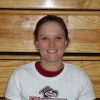 Another experienced player is Lori Bossert (Calgary Kookaburras) who has 5 years experience playing Australian football. She was one of the original Kookaburras and has received numerous awards at the club including Best and Fairest, Top Goal Kicker and Kooka of the Year. She played for the Northern Lights against the USA Freedom in 2007 and again in the 2010 49th Parallel Cup.
Another experienced player is Lori Bossert (Calgary Kookaburras) who has 5 years experience playing Australian football. She was one of the original Kookaburras and has received numerous awards at the club including Best and Fairest, Top Goal Kicker and Kooka of the Year. She played for the Northern Lights against the USA Freedom in 2007 and again in the 2010 49th Parallel Cup.
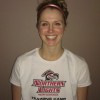 Erin Loughnane (Toronto Eagles) is a newcomer to football but not a newcomer to representing Canada as a top sportswoman. She has played Gaelic football for 10 years and represented Canada in the 2002 and 2005 international tournaments in Dublin and was named player of the tournament in the 2005 competition. The similarities between Aussie Rules and Gaelic football brought her to the oval ball and she now hopes to bring her skills and experience to the Northern Lights and their International Cup hopes.
Erin Loughnane (Toronto Eagles) is a newcomer to football but not a newcomer to representing Canada as a top sportswoman. She has played Gaelic football for 10 years and represented Canada in the 2002 and 2005 international tournaments in Dublin and was named player of the tournament in the 2005 competition. The similarities between Aussie Rules and Gaelic football brought her to the oval ball and she now hopes to bring her skills and experience to the Northern Lights and their International Cup hopes.
Form Guide and Bottom Line
The Northern Lights are going into IC11 confident after their 2010 win over the USA Freedom, but might find it tough playing against the different styles of football played by the Irish Banshees and the Papua New Guinea team. The team is full of home grown talent which promises a tough line up in years to come, but the lack of women with experience playing in the top level women’s football leagues in Australia will make overcoming the AMI (Australian Multicultural/ Indigenous) team difficult.
The Team
Head Coach: Tristan Waldock
Assistant Coach: Amy Wynee
Assistant Coach: Mark Peterson
Assistant Coach: Chris Nolan
PLAYER CLUB & PROVINCE
Aimee Legault Montreal Angels (Quebec)
Lucy Nolan Edmonton Emus (Alberta)
Caitlin Finney Toronto Eagles (Ontario)
Caitlin Kidd Calgary Kookaburras (Alberta)
Ciara Lanigan Calgary Kookaburras (Alberta)
Erin LeBlanc Calgary Kookaburras (Alberta)
Erin Loughnane Toronto Eagles (Ontario)
Hilary Perry Calgary Kookaburras (Alberta)
Jenna Jakes West Coast Wildcats (British Columbia)
Julia Franklin Calgary Kookaburras (Alberta)
Katelyn Nanka West Coast Wildcats (British Columbia)
Lesley Zmurchuk Calgary Kookaburras (Alberta)
Leslie Gurba Calgary Kookaburras(Alberta)
Lindsay Belzie Montreal Angels (Quebec)
Lisa Tazzman Toronto Central Blues (Ontario)
Lori Bossert Calgary Kookaburras (Alberta)
Lyndsay Smith Calgary Kookaburras (Alberta)
Margo Legault Montreal Angels (Quebec)
Marlena Ginocchio West Coast Wildcats (British Columbia)
Meaghan Goodfellow Calgary Kookaburras (Alberta)
Melanie Billing Toronto Central Blues (Ontario)
Audrey Perry Edmonton Emus (Alberta)
Natasha Murphey West Coast Wildcats (British Columbia)
Neda Dalili Edmonton Emus (Alberta)
Paige Wilson West Coast Wildcats (British Columbia)
Rochelle Allan Toronto Central Blues (Ontario)
Sherelle Kelly-Witt Toronto Central Blues (Ontario)
Sarah Ennor Toronto Eagles (Ontario)
Renee Tong Toronto Central Blues (Ontario)
Stephanie Lanteigne Edmonton Emus (Alberta)
Genevieve McDonough McLennan Toronto Eagles (Ontario)
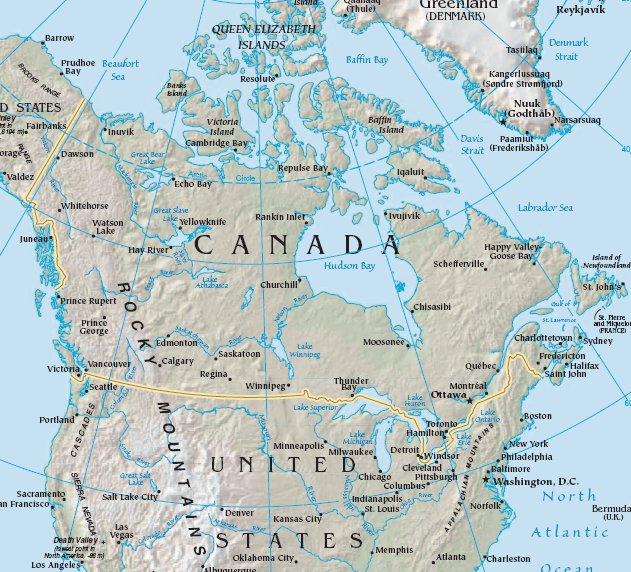
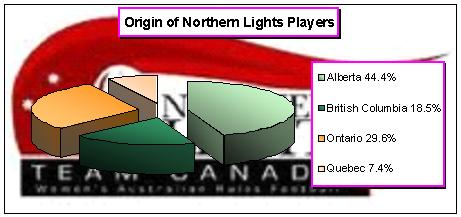


 RSS news
RSS news Twitter
Twitter Facebook
Facebook